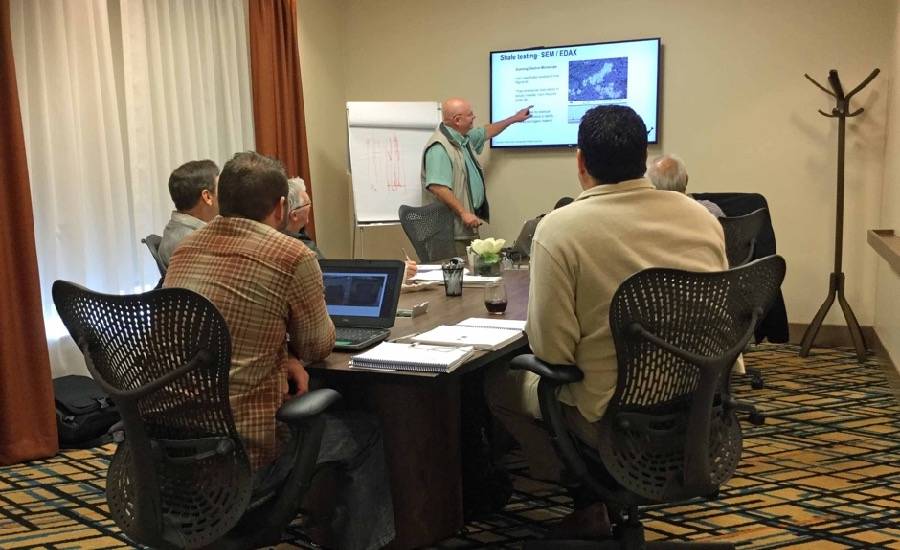Intro/Disclosure:
Dave Messler is currently an advertiser with drillers.com. If you’re reading this in the summer of 2017, you’ll probably see one of those adverts on this web page. When we work with advertisers and partners, we always try to think of ways to maximise the potential exposure and message delivery. At the same time, we don’t want to write articles or recommendations that are commercially biased, without adding extra value or education for visitors.
When we started to work with Dave, we asked a number of questions among the drillers.com team. The chances are that anyone considering signing up for one of Dave’s courses will have questions too. This is the reason for the following article. While we’ll highlight the upcoming courses, there will also be interesting topics for debate and learning. If we’ve missed out any questions then these can be bought up in the comments section. This way, we can publish questions and answers once, and people can benefit for years to come.
If you’re reading this in ‘the future’ perhaps you’ll see feedback and topics from the courses themselves. This post will stay on drillers.com permanently, so can add to the conversation about drilling fluids for years to come.
Q&A with Dave:
During an Oil & Gas downturn why is it still important for businesses to invest in training and staff development?
Training suffers from a double-whammy mind set. When business is good, employees can’t be spared from active to attend training. When things slow down, there’s no money… hence the double-whammy!
During a downturn, there is a shift in the mentality of companies, particularly in the service sector. As the focus shifts from covering jobs with skilled workers to meeting corporate headcount reduction goals, training is usually the second cost category to hit the chopping block, after T&E.
There is a sad logic to some of this as managers see no point in training employees that will be laid off in the near future. I know in my former company training has been essentially shutdown for almost 2-years now, with an 80% reduction in experienced trainers.
The problem that arises from this blanket prohibition is two-fold:
- Firstly, most large companies require training levels and certifications for young employees to advance. When they are blocked from progression by arbitrary, albeit necessary, measures, they can become frustrated and leave the industry of their own volition.
- Secondly, as Training departments are gutted, the institutional memory and depository of experience that senior bring is no longer available to young people that are left to carry on.
All of these scenarios can contribute to a skills gap that can impact projects that are still being developed.
Should individual consultants take the time to learn and enhance their skills?
Hmm, funny you ask this question. I actually wrote an article extolling the virtues of training a while back.
Here it is. https://www.linkedin.com/pulse/cant-find-work-oilfield-perhaps-its-time-invest-yourself-messler
So, I say to people, you’ve got the time now. Why not move ahead of your competition for rig jobs and add a new skill to your resume?
Here’s the thing I think professionals who are going to stick with the oil and gas business should realize. Just sitting at home isn’t doing anything to get you another job. You’ve got to be proactive. Attending training is the definition of proactivity.
You have been in the Oil & Gas Industry for over 35 years, what made you decide to set up ACME Fluids Training?
I retired from M-I in 2015 in Kuala Lumpur and returned to the U.S. After I left M-I, I did a little consulting for a chemical manufacturer, but that proved to be short-lived.
After taking stock I thought I would look into providing training to young engineers, as a way of continuing to contribute to the industry. And, let’s face it, companies aren’t hiring sixty-three years at a great rate right now. If I was going to get a job, I had to make my own.
As far as specialized fluids training goes, I think it is the most complete of its kind. I just concluded my first class in Houston and have a couple of more planned for this year.
What type of training do you offer?
Reservoir Drilling Fluids Training targeted toward young engineers who will be designing non-damaging fluids that will be pumped into the well.
It is intended to give them an overview of the formation damage potential that exists, and the best technology for minimizing this occurrence. Other areas that relate to specialty fluids- brines, fluid loss pills, filtration, and well bore clean ups are also covered. People from companies that the sell to the service industry will also benefit.
Students will emerge from this class with a more complete understanding of the role specialty fluids play, in the OH completion process, and will have the tools to be a strong well delivery team member.
This 5-day ‘open access’ course provides in-depth overview covering all aspects of intelligent Reservoir Drilling Fluid (RDF) design, and field implementation. We will start with factors that can impact formation damage potential, and industry best practices to mitigate them.
Key areas of instruction will include:
- Formation Damage: how RDF components can affect the state of the reservoir.
- Bridging Pore Throats: the key to minimizing RDF invasion into the near well bore.
- Computer modeling of bridging.
- Shale Stabilization: shale can be affected in varying degrees by RDF base fluid. This module will discuss the testing to validate a formulation for this criteria.
- Laboratory Testing of RDF formulations: a rigorous process that fine tunes a formulation for field implementation, or testing against reservoir rock.
- Water-Based RDF’s: with chemical amendments these can be very inhibitive.
- Oil-Based RDF’s: may be required for shale stability. Modifications may be needed to emulsifier concentrations for the RDF application.
- Breakers: usually advisable to help restore communication with the reservoir. There are many types to consider here.
- Well Bore Cleanups: an overview of cleaning up the well bore for installation of an RDF, and changing over to completion fluid will be presented.
- Computer modeling of well cleaning.
At the conclusion of this class the student will have a working knowledge of the key elements RDF design can impact reservoir productivity. He or she will be ready to participate fully as a knowledgeable team member on any project involving the use of RDF’s.
PULLMAN BANGKOK GRANDE SUKHUMVIT
30 SUKHUMVIT 21 (ASOKE) ROAD
BANGKOK 10110– THAILAND
T. 66 2 204 4038 – M. 66 80 357 4445 – F. 66 2 204 4188
ES2@
PULLMANBANGKOKGRANDESUKHUMVIT.
Course Delivery:
The class will consist of both lecture and class room exercises making it a highly interactive experience.
Early booking is recommended as class sizes is limited to maximize student/instructor interaction.
Feedback that Dave has received from previous events:
“Great pace, knowledge, volume and control throughout course”
“Expert knowledge on topic”
“Excellent presentation and time management”
“Size of class really helped the teaching and discussions”
“Good class on drilling fluids, understanding things than can affect a formation and good overview on offshore drilling”
“Good use of slide and information to illustrate concepts”
“Discussions were excellent”




